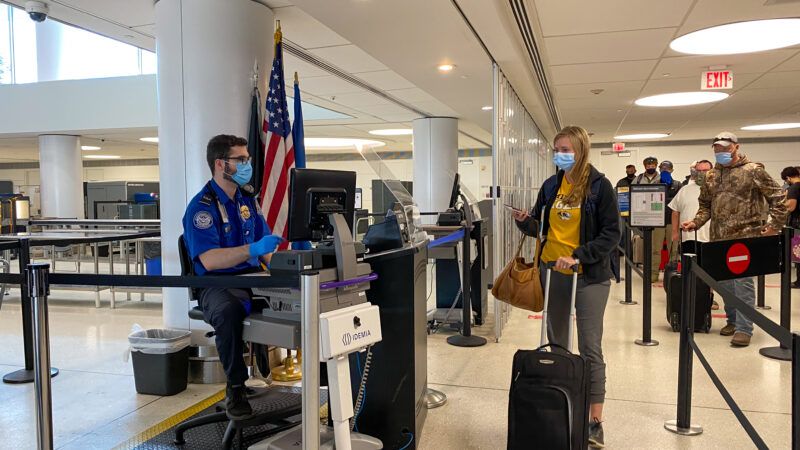Extending the Mask Mandate for Air Travel 'Absolutely on the Table' Says White House COVID-19 Czar
"I know the CDC is working to develop a scientific framework," says Ashish K. Jha

The federal mandate requiring passengers and personnel to wear masks on airplanes, trains, and buses is set to expire on April 18, but federal health officials are giving every indication that they are willing to extend it once again.
"This is a decision that CDC Director Rochelle Walensky is going to make," Ashish K. Jha, the White House's COVID-19 response director, told the Today show on Monday. "I know the CDC is working to develop a scientific framework."
When host Savannah Guthrie pressed Jha to clarify whether extending the mask mandate was a real possibility, he said "it's absolutely on the table."
.@SavannahGuthrie spoke with White House COVID-19 Response Coordinator Dr. @ashishkjha about the rising COVID cases and mask mandates. pic.twitter.com/OZX62EaN3o
— TODAY (@TODAYshow) April 11, 2022
Technically, the policy falls under the jurisdiction of the Transportation Security Administration (TSA) rather than the CDC or the White House. But the TSA, like most other COVID-19 compliant authorities, defers almost entirely to CDC guidance. In practice, the power to compel masking belongs to Walensky, who has taken an extremely cautious approach to easing mandates in a variety of circumstances.
But the policy of forced masking on airplanes actually runs counter to what many industry experts say is appropriate: The CEOs of several major airlines have testified before Congress that the air quality on planes is better than the air quality in the ICU. They think it would be extremely safe to let passengers make their own decisions about whether to wear a mask; it is not likely that COVID-19 hospitalizations and deaths would surge as a result.
Unfortunately, the responsibility for making this determination does not rest with the individual traveler or even the individual airline: It largely rests with Walensky. This means that even though hospitalizations and deaths remain steady as cases rise, extreme risk-aversion will likely continue to be the law of the land.
For many families with young children, the practical implication is that they cannot travel by airplane at all, since it is difficult to force small kids to wear their masks for entire flights. Masks are not a cost-free intervention for parents in this circumstance, and whatever benefits the CDC thinks this policy yields must be weighed against the very real downsides.
At a time when occasional upticks in cases following new waves and more infectious strains of COVID-19 do not produce appreciably more hospitalizations and deaths, one might be forgiven for thinking that it would be acceptable to let onerous restrictions expire.

Show Comments (67)